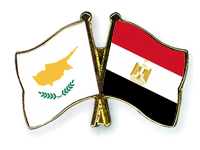Κατρακυλούν οι τιμές ΦΑ, απομακρύνεται το τερματικό
Σημαντικά συμπεράσματα για την ανάπτυξη και εκμετάλλευση των κοιτασμάτων της Ανατολικής Μεσογείου εξάχθηκαν κατά τη διάρκεια του δεύτερου East Mediterranean Gas Conference που πραγματοποιήθηκε στην Πάφο και ολοκληρώθηκε την Τετάρτη. Μιλώντας στο SigmaLive, ο τέως Εκτελεστικός Πρόεδρος της ΚΡΕΤΥΚ, Χαράλαμπος Έλληνας, ο οποίος συμμετείχε στις εργασίες του συνεδρίου, είπε ότι το γεγονός ότι συμμετείχαν εταιρείες και ειδικοί επί των ενεργειακών θεμάτων από όλο τον κόσμο.
Όπως ανέφερε, συζητήθηκαν πολλά θέματα όπως οι προοπτικές του φυσικού αερίου στην Ανατολική Μεσόγειο, η προσφορά και η ζήτηση και η επιρροή στις τιμές, οι μελλοντικές αγορές, ο ρόλος της Κύπρου στην ανάπτυξη των υδρογονανθράκων της περιοχής, το ρυθμιστικό και νομικό πλαίσιο που χρειάζεται για να συμβάλει στην αποτελεσματική ανάπτυξη καθώς και οι εξελίξεις στο Λίβανο, το Ισραήλ και την Αίγυπτο. Αντικείμενο του συνεδρίου ήταν και οι νέες τεχνολογίες όπως οι πλωτές μονάδες υγροποίησης, η συμβολή των υποθαλάσσιων αγωγών καθώς και η ανάπτυξη του τοπικού ανθρώπινου δυναμικού.
Πέφτουν οι τιμές, απομακρύνεται το τερματικό
Ένα από τα κυριότερα συμπεράσματα του συνεδρίου, είναι ότι οι τιμές του υγροποιημένου φυσικού αερίου παρουσιάζουν πτώση ακόμα και στις αγορές της Ασίας, κάτι που σημαίνει ότι η επιλογή του τερματικού καθίσταται όλο και πιο δύσκολη για την Κύπρο. Παράλληλα, όπως εξήγησε ο Χαράλαμπος Έλληνας, πτώση παρουσιάζουν και οι τιμές του ΦΑ στην ΕΕ, ενώ σύμφωνα με τα υπάρχοντα στοιχεία, στο μέλλον εκτιμάται ότι θα υπάρχει πλεόνασμα υγροποιημένου φυσικού αερίου.
Καθίσταται τεχνικά εφικτός ο αγωγός Ισραήλ-Κύπρος-Ελλάδα-Ιταλία
Ο Χαράλαμπος Έλληνας, είπε ότι με τα σημερινά δεδομένα, θα πρέπει να εξεταστεί σοβαρά η λύση των πλωτών μονάδων υγροποίησης αλλά και η λύση μεταφοράς συμπιεσμένου φυσικού αερίου με πλοία. Επιπλέον πρόσθεσε ότι σύντομα γερμανική εταιρεία θα έχει ολοκληρώσει το πρώτο πλοίο το οποίο θα έχει τη δυνατότητα εγκατάστασης υποθαλάσσιων αγωγών σε βάθος μέχρι 3000 μέτρα, κάτι που θα σημαίνει ότι η κατασκευή αγωγού που να συνδέει την Κύπρο με την Ελλάδα, καθίσταται τεχνικά εφικτή.
Σε αυτό το σημείο, αξίζει να αναφερθεί, ότι σε δηλώσεις του αυτή τη βδομάδα, ο Υπουργός Εξωτερικών του Ισραήλ Άβιγκντορ Λίμπερμαν, είπε ότι ο ίδιος προκρίνει την επιλογή εξαγωγής του φυσικού αερίου από τα ισραηλινά οικόπεδα μέσω αγωγού στην δυτική Ευρώπη. Μάλιστα είπε ότι η δημιουργία ενός αγωγού Ισραήλ-Κυπρου-Ελλάδας-Ιταλίας θα μπορούσε να αποτελέσει μια πιθανή λύση. Το σενάριο δημιουργίας αγωγού που θα οδηγεί στην Τουρκία, φαίνεται να απομακρύνεται το τελευταίο διάστημα, λόγω των πολιτικών διαφορών μεταξύ των δύο χωρών σε ότι αφορά τη Λωρίδα της Γάζας.
Σημαντική εξέλιξη η συμφωνία συνεκμετάλλευσης με την Αίγυπτο
Κληθείς να σχολιάσει την συμφωνία συνεκμετάλλευσης που υπεγράφη μεταξύ της Κυπριακής Δημοκρατίας και της Αιγύπτου, ο Χαράλαμπος Έλληνας είπε ότι είναι πολύ σημαντική ενόψει των γεωτρήσεων της Total, αφού ενδεχομένως να προκύψουν κοιτάσματα που να είναι και στις δύο πλευρές των ΑΟΖ. «Είναι σημαντικό είπε να μπορούμε να εκμεταλλευτούμε αυτά τα κοιτάσματα χωρίς προβλήματα».
Σε ότι αφορά το μνημόνιο συναντίληψης για πώληση κυπριακού φυσικού αερίου στην Ιορδανία το 2015, είπε ότι θα είμαστε σε θέση να το πράξουμε, αλλά ενδεχομένως να έχουμε το ίδιο πρόβλημα που αντιμετωπίζει το Ισραήλ με τις ποσότητες αλλά και τα ζητήματα μεταφοράς του. «Το timing που βγήκαμε σε αναζήτηση αγοραστών είναι σωστό. Υπάρχουν περιφερειακές αγορές για το ΦΑ της Κύπρου και πρέπει να τις κυνηγήσουμε ενεργά και έγκαιρα σε συνεργασία με τις εταιρείες ΦΑ που δραστηριοποιούνται στην Κύπρο», κατέληξε.
zannettos@sigmalive.com
Link to source: http://www.sigmalive.com/news/energia/160388




